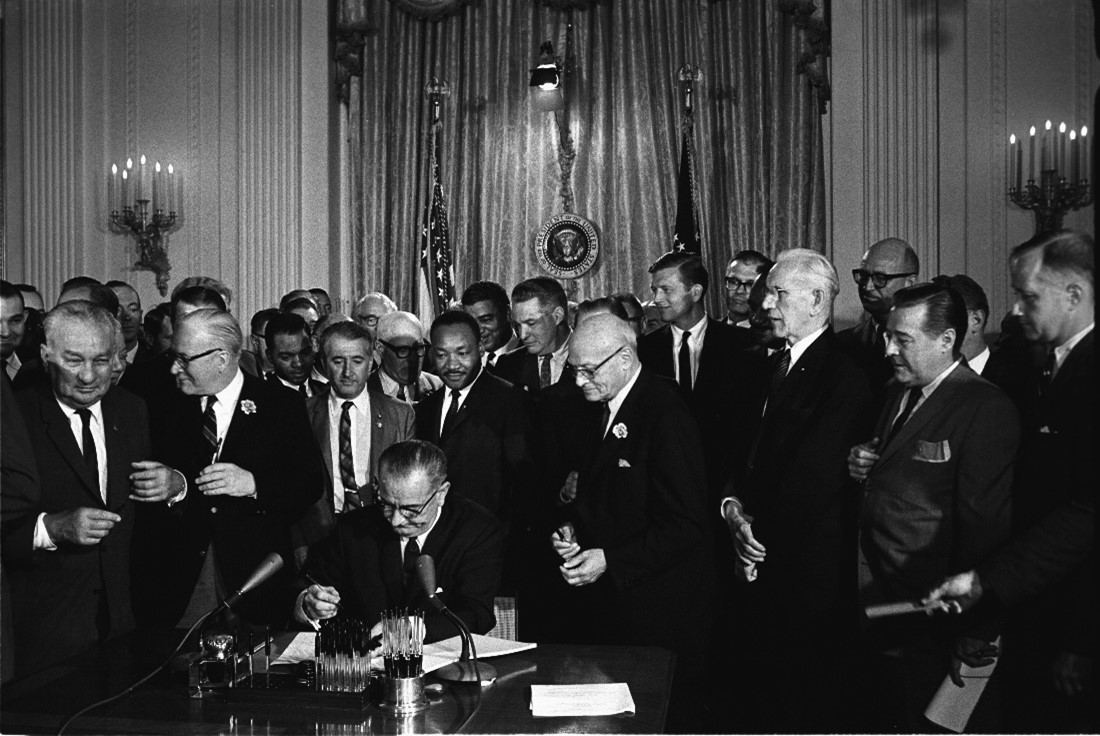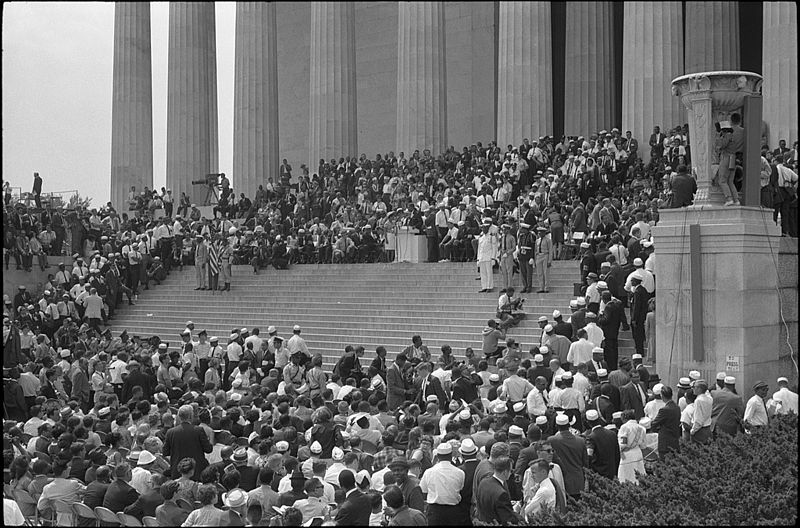
Civil Rights
On July 2, 1964, President Lyndon B. Johnson signed the Civil Rights Act into law. With bipartisan support from both the Senate and House, the law "…prohibited discrimination in the workplace, public accommodations, public facilities, and agencies receiving federal funds, and strengthened prohibitions on school segregation and discrimination in voter registration" (The Library of Congress, n.d.).
As with all social advancements, the conditions that led to the signing of this monumental legislation were, in some ways, just as important as the signing of the bill itself. Though African Americans experienced a disproportionate amount of racist tactics and discriminatory actions, women and the LGBTQ community also experienced discrimination. As a result, this era saw massive protests, demonstrations, marches, foundations combating discrimination, and other events. Some of the most significant historical events in American history as they relate to the civil rights movement fall under these categories.
After reading the above lists, view the film Soundtrack for a Revolution (2009), a documentary that explores the civil rights movement through music. You can also read the transcript of the documentary here.
Steal Away
O, walk together children
"Steal away
steal away
steal away to Jesus
Steal away
steal away home
I ain't got long to stay here"
Donna M. Cox
"From the moment of capture, through the treacherous middle passage, after the final sale and throughout life in North America, the experience of enslaved Africans who first arrived at Jamestown, Virginia...was characterized by loss, terror, and abuse."







